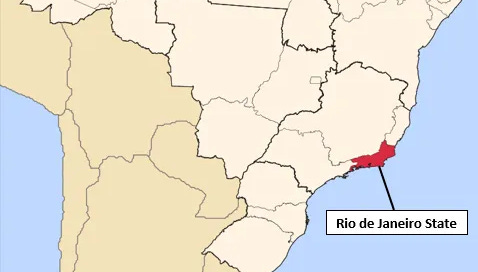The Rio de Janeiro State Health Department (SES-RJ) reports that it received confirmation of two cases of measles in the municipality of São João de Meriti late March 14.
The samples were analyzed by the Noel Nutels Central Public Health Laboratory (Lacen-RJ) and Fiocruz.
The cases involve two children from the same family who were treated at an emergency care unit in the municipality on March 2 and transferred to a federal hospital in Rio de Janeiro. Both were discharged on Thursday and are doing well.
After the municipality reported the suspected case, the Epidemiological Surveillance, Primary Care and Immunization teams of SES-RJ followed the technical visit protocol recommended by the Ministry of Health to guide municipal epidemiological surveillance technicians. An alert with a technical note was also sent to the surveillance coordinators of the state's 92 municipalities.
Surveillance continues to monitor the actions adopted by the municipality, including: vaccination of health professionals at the unit where the cases were detected and active search for suspected cases in the region.
"After notification of the suspected cases, we instructed the municipality to conduct a survey of all patients who were treated during the period in which the children remained in the municipal unit to verify possible similar conditions and monitoring by the health teams, as well as to verify the vaccination schedule of the patients' family members", highlighted Mário Sergio Ribeiro, state undersecretary of Surveillance and Primary Health Care. According to the undersecretary, to date there is no record of other suspected cases related to this event.
On February 27, SES-RJ had already confirmed an isolated case of measles in Itaboraí, in the metropolitan region of Rio. The case, reported as suspected in October 2024, was a six-year-old child. The source of the infection could not be identified. The child is also doing well. The case in Itaboraí and those in São João de Meriti are not related to each other, according to state surveillance technicians.
In 2024, the state of Rio de Janeiro reported 207 suspected cases of measles, of which 205 were ruled out, one was confirmed and one remains under investigation.
In 2025, to date, 30 cases have been reported, two of which were confirmed, ten were discarded and 18 are still under laboratory investigation.
On Friday, during a meeting to set up the Measles Situation Room, the State Health Department reinforced the importance of vaccination and immediate reporting of suspected cases by municipalities.
“Health units must follow epidemiological surveillance guidelines, including carrying out blockade vaccination and promptly investigating reported cases,” reiterates Mário Ribeiro.
How contagious is measles? What is R0?
The population can also contribute by keeping their children's vaccination records up to date and seeking out a health unit in case of symptoms compatible with measles, such as high fever, cough, runny nose, conjunctivitis and red spots on the body. It is worth remembering that the vaccination schedule is mandatory and prevents a series of diseases.
Who can be vaccinated?
The vaccination schedule recommended by the Ministry of Health provides for two doses: the first at 12 months of age, with the Triple Viral vaccine (measles, mumps and rubella), and the second at 15 months, with the Tetra Viral (which includes chickenpox).
People aged 1 to 29 years should have two doses of the MMR vaccine, while adults aged 30 to 59 years should have at least one dose. Healthcare professionals must prove they have had two doses regardless of age. In outbreak situations, children aged 6 to 11 months can receive an extra dose, called a 'zero dose'.





